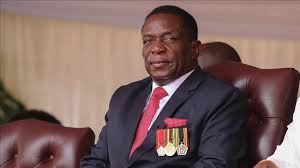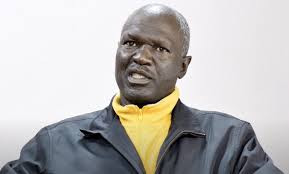WITH Zimbabwe having celebrated its Independence Day last week, my mind was taken back to one of the most famous of all African creative writers', (Okot p Bitek) poem — Song of Lawino — a masterpiece of world literature. In my view the poem best captures the meaning of Uhuru, especially in light of the worrying political, economic and social situation in Zimbabwe and most African states.
The beauty of the arts and the literary world lies in perfectly capturing serious political, economic and social issues in a lighter and at times humorous ways with the increasing role of social media platforms in creating humorous content on serious issues including the recent Gold Mafia Al Jazeera exposé, is probably what’s keeping Zimbabweans going in light of these difficult and challenging times.
The private local media, from ZimDaily as well as AMH and its publications, have played an essential part through their humorous cartoons that perfectly capture the challenges which confront our society today.
Without these media and online content platforms), many would drop dead due to depression, stress, and anxiety-related ailments.
I know for sure that even the country’s top political elites sometimes laugh when they visit social media, in particular, the ridicule and the political satire they encounter in these social media streets.
In Song of Lawino, through the poem The Buffalos of Poverty Knock the People Down”, Okot p Bitek uses Lawino’s scathing criticism of political elites and the betrayal of hopes at Independence by likening Independence to a fallen buffalo which the hunters rush to with drawn knives,
Keep Reading
- The only market where knowledge exchange is part of customer experience
- Dave Chappelle: US comedian attacked on stage in Los Angeles
- AMH investor forum to explore Zim opportunities
- Take Fizzo resurfaces…reunites Chambembe members
Independence falls like a bull buffalo,
And the hunters rush to it with drawn knives,
Sharp shining knives, for carving the carcass
And if your chest is small, bony and weak
They push you off,
And if your knife is blunt
You get the dung on your elbow
You come home empty handed
And the dogs bark at you” (pp.85)
This was undoubtedly one of my favourite poems and its lines in Song of Lawino and I had to retrieve the old torn book on Independence Day having held it when I last sat for my "A" Level Literature exam slightly over a decade ago and for a decade old book, I found it to be still very much intact and holds so much literary memories with it.
In the literary piece, Lawino captures the coming of Uhuru and the betrayal of hopes at Independence which even up until today reflects modern-day African politics. Although first published in 1960 and then translated into English in the 1980s, it is as if Okot p Bitek wrote the book as a literary prophet, and in the book’s introductory remarks, this is what the late Ugandan Academic had to say,
“I hope my Song of Lawino for instance will be relevant in fifty years to some historians.
But surely in 50 years’ time, we will have other issues, I hope that people will stop buying Song of Lawino when it ceases to be relevant to them–
(Okot Africa’s Cultural Revolution,1973,47)
It is with great sadness that 50 years later the same issues are still haunting African politics and fortunately for Okot p Bitek’s legacy — his book remains very relevant and selling — and should be a recommended must-read to Africa’s political elites. Okot highlights how the ruling elites have plundered resources at the expense of the masses,
“And the other men carry large pieces of fatty beef. You hear their horns loud and proud.
And you eat vegetables without the Sim-Sim paste.
And your children collect the Odir and Ocene insects and eat them
(pp.85)
Lawino’s lamentations seem to be pointing out that they don’t have any problem with political elites eating but that the masses should have a share of the bull buffalo too.
And the children of others are fat,
And their wives grow larger buttocks,
They eat meat from chest of bulls (pp.86)
The poetry piece also laments how the political elites abandon the masses only to return to the country side when elections are around the corner.
“They return to the countryside
For the next election, Like the Kite
That returns during the dry season
When the Kites return, the dry season has come” (pp,88)
Here, Okot seems to be calling for the political elites to deliver on their promises to the masses who elected them to power.
Moreover, Okot p Bitek pits two brothers against each other as they lead two parties which claim to have different ideologies and to fight for the masses and challenges them to unite and work together for the betterment of their people. Reference is made in the text to how even African opposition political parties share some resemblances with the ruling political elites.
“The Democratic Party, how does it differ from the Congress?
Ocol says they want Uhuru
His brother say they want Uhuru and Peace
Both of them fight ignorance and disease
Then why do they not join hands”(pp, 89)
Here through Lawino, Okot p Bitek seems to be representing the voices of those who see the breakdown in the traditional African political systems that emphasized unity as yet another disaster. The adoption of Western political systems is portrayed as being a cause of Africa’s political systems is portrayed as being the cause of Africa’s problems of poverty, ignorance, and diseases.
And while the pythons of sickness swallow the children,
And the buffalo’s of poverty knock the people down
And ignorance stands there like an elephant,
The war leaders are tightly locked in bloody feuds,
Eating each other’s liver (pp.90)
The late celebrated creative Academic writer Okot p Bitek (1931-1982) was a man of diverse talents who composed and produced an opera and played football for Uganda. For a stormy period, he was Director of Uganda’s National Theatre and taught at the University of Makerere, Nairobi, Ife, Texas, and Iowa becoming a professor of Creative Writing at Makerere. It is also great irony that his book, although written over 50 years ago, also paints a picture of the political, economic, and social challenges which confront Uganda today. His other works in the Poets of Africa series include Two Songs of Horns of my Love, Artist the Ruler, and White Teeth all published by E.A.E.P with Song of Lawino being among his most successful African literary work — an African woman lamentation over the cultural death of her western educated husband Ocol.
Fungayi Antony Sox is a communications strategist,publishing consultant and a patriotic citizen of Zimbabwe. For feedback contact him on 0776 030 949, connect with him on LinkedIn at Fungayi Antony Sox or follow him on Twitter @AntonySox.





